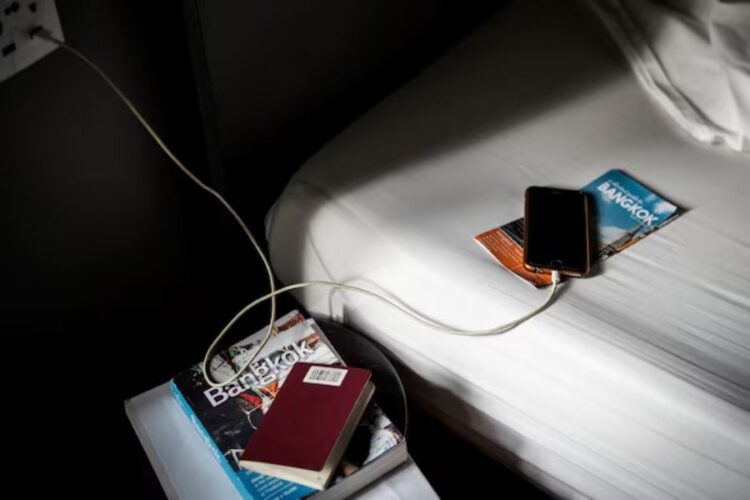Human trafficking is a devastating crime that frequently operates from within hotels and motels, whose staff are often the only outside observers with the potential to intervene. Under federal law, these establishments can be held responsible for their negligence.
A civil lawsuit against a hotel for human trafficking hinges on demonstrating that the hotel’s management or staff knew, or reasonably should have known, that trafficking was occurring on their property. This requires building a case based on specific patterns and behaviors.
Understanding the key factors courts consider in such cases helps to demystify the legal process for survivors and their advocates while empowering the public to recognize and report suspicious activity.
Proving Negligence: What Courts Look For
To establish a hotel’s liability, attorneys look for evidence that proves the establishment ignored clear red flags. These indicators, when documented, can transform a case from one person’s word against a corporation’s to a clear story of negligence. Courts analyze staff actions, guest records, and operational protocols to see if the hotel met its legal and moral duty to protect its guests. The following factors are instrumental in proving a hotel’s liability.
-
Ignoring Obvious Physical and Behavioral Red Flags
One of the most compelling factors is evidence that hotel employees witnessed clear signs of trafficking but failed to act. These are not subtle cues; they often indicate something is wrong. Courts will consider staff testimony and records that show victims appeared malnourished, frightened, or displayed signs of physical abuse.
Other red flags include guests who are not allowed to speak for themselves, are not in control of their own identification or money, or seem to be under constant supervision. These indicators are well-documented in law enforcement reports and federal investigations into trafficking rings operating from hotels across the United States. A hotel’s failure to recognize and respond to such overt signs can be presented as evidence of negligence.
-
Unusual Transaction and Reservation Patterns
How a room is paid for and booked can provide a clear digital trail of suspicious activity. Traffickers often try to obscure their identities and operations through specific transactional behaviors that a well-trained hotel staff should recognize.
Key indicators courts will examine include frequent cash payments made for rooms, especially for extended stays, to avoid a paper trail. Another red flag is when rooms are booked online by a third party for guests who are local residents, which can suggest an attempt to mask the true occupants.
Additionally, a significant indicator is a pattern of using multiple, often declined, credit cards or refusing to provide identification. These practices deviate from typical guest behavior and should trigger suspicion from hotel staff.
-
Excessive and Unusual Foot Traffic
A hotel room used for sex trafficking will typically have a high volume of men visiting for short durations at all hours. This pattern is a classic sign of commercial sexual exploitation and is difficult for hotel staff, from the front desk to security personnel, to miss.
Evidence in a lawsuit will often include security camera footage, guest logs, and testimony from employees or other guests who noticed the unusual flow of visitors. A hotel’s failure to question or report this type of activity is a powerful indicator of negligence, suggesting they either willfully ignored the situation or lacked the basic protocols to address it.
-
Long Stays with Constant Do Not Disturb Signs
Traffickers work to isolate their victims from the outside world, and a hotel room provides the perfect environment. A common tactic is to keep a permanent Do Not Disturb sign on the door for days or weeks. This prevents housekeeping and other staff from entering the room and observing what is happening inside.
This is often combined with requests for fresh towels and linens to be left outside the door, minimizing any contact with hotel employees. While hotels must respect guest privacy, an extended and complete refusal of service should trigger a wellness check. The absence of such a policy can be presented in court as a form of negligence.
-
Inadequate Staff Training and Safety Protocols
Ultimately, a hotel’s liability often comes down to a fundamental failure: the lack of proper training. The United States’ Trafficking Victims Protection Reauthorization Act–otherwise known as TVPRA–provides a legal framework for victims to sue entities that benefit financially from trafficking, including hotels. To defend themselves, hotels must show they took reasonable steps to prevent it. When hotels fail to train their staff to recognize and report the red flags discussed above, they create an environment where traffickers can operate with impunity.
A lawsuit against hotels for human trafficking can not only secure financial compensation for survivors but also force these establishments to implement systemic changes to prevent future crimes.
The Role of Citizens in Reporting Human Trafficking
While the legal system holds corporations accountable, everyday citizens can play a crucial role in disrupting human trafficking operations. The same red flags that attorneys use to build a legal case—physical signs of abuse, isolation, unusual guest behavior, and excessive foot traffic—are also indicators that any member of the public can learn to recognize. The ability of a hotel guest or a passerby to spot and report these signs is a vital first step in saving a life.
Reporting suspected human trafficking is straightforward but critical. The National Human Trafficking Hotline provides a confidential and anonymous way to report tips via phone at 1-888-373-7888. You may also text HELP or INFO to 233733. For immediate emergencies, local law enforcement should be contacted by calling 911. Organizations like the Department of Homeland Security’s Blue Campaign also offer educational materials and a dedicated tip line at 1-866-347-2423 to help the public identify and report trafficking.
When filing a lawsuit against hotels for human trafficking, law firms must approach these cases with extreme care and sensitivity. The delicate nature of civil litigation for trafficking survivors requires a legal team to not only understand the complexities of the TVPRA and state laws but also to prioritize the well-being of the victims. This often involves collaborating with victim advocacy groups and social services to ensure survivors receive the comprehensive support they need, from mental health counseling to secure housing, as they navigate the legal process.
These lawsuits, as highlighted by successful outcomes, have two purposes: to obtain financial compensation that aids in a survivor’s recovery and to compel corporate reform. The strategic work of law firms specializing in this area is a testament to the legal system’s power to create systemic change. More information on the intersection of law, advocacy, and the fight against human trafficking is available on professional legal sites that detail these complex cases and their implications for public policy.
Finding a Path to Justice
Proving a hotel’s liability in a human trafficking case requires showing that the establishment ignored clear warning signs and failed in its duty to protect its guests. The factors discussed are critical evidence for building a negligence case.
Understanding these elements is vital to achieving accountability and justice for survivors. If you or someone you know has been a victim of human trafficking at a hotel, contacting a qualified US-based attorney who specializes in these complex cases can help you understand your rights and explore your legal options.
Disclaimer: This article is for informational and discussion purposes only and does not in any way constitute legal advice. You should contact a qualified attorney in your state for advice on any particular issue or problem.










